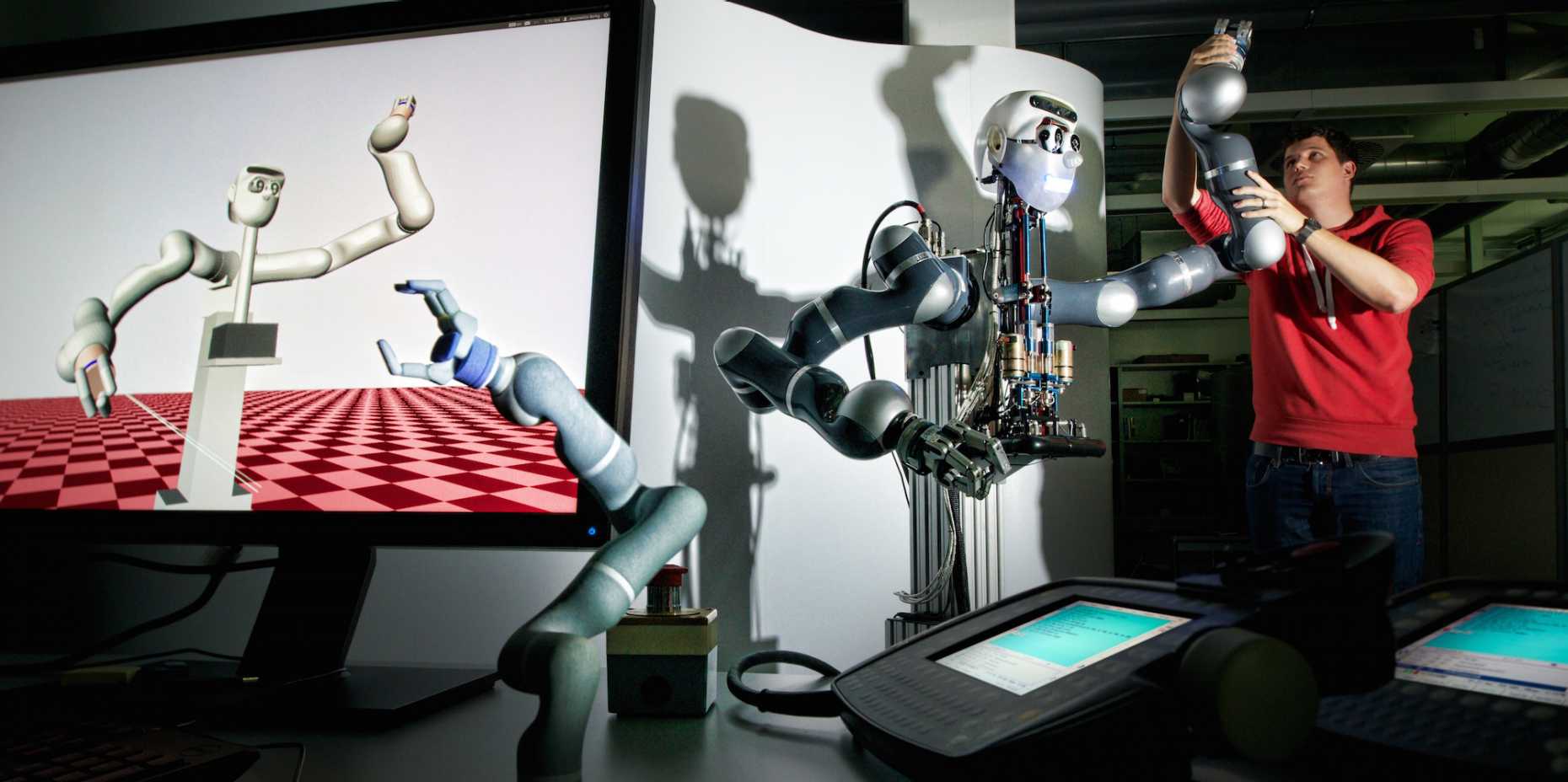Teaching machines how to learn
Machines will become not just more intelligent in the future, but also more capable of learning. To promote research in this field, ETH Zurich and the Max Planck Society officially open the Max Planck ETH Center for Learning Systems today. The scientists want to understand the theoretical principles of learning and how these can be applied to real machines.
Cars that can park themselves, or robots that can move along uneven terrain, must be able to learn from their experiences and adapt to new situations and environments. Although these abilities are a given for humans, they present major challenges for machines. However, research in this field is progressing at a rapid pace. In order to educate the next generation of scientists in this area, intensify collaborative research and benefit from a shared infrastructure, ETH Zurich and the Max Planck Society have joined forces to establish a centre for learning systems. The centre will receive a total of five million euros in funding in the first five years, with the Max Planck Society and ETH Zurich each providing half.
What determines intelligence?
The scientists at the new centre are investigating what determines the intelligence of living beings. "We are not just interested in application problems. Instead, we want to achieve a fundamental understanding of how people perceive, learn and then react appropriately to situations," says Thomas Hofmann, professor at ETH Zurich's Institute of Machine Learning. Hofmann heads up the Center for Learning Systems together with Bernhard Schölkopf, Director of the Max Planck Institute for Intelligent Systems in Tübingen.
The researchers are hoping to use the insights gained from these fundamental studies to evolve methods of machine learning. Similar procedures are already used to detect statistical regularities in large volumes of data. However, many of them are still limited to specific tasks. Methods used to accurately identify faces in images, for example, will not teach a robot how to handle difficult terrain. The learning capacity of humans, on the other hand, depends very little on the specific task. "If we can develop a better understanding of how learned aspects can be transferred between different tasks, we may be able to create artificial systems that learn in a similar way to living beings," explains Schölkopf.
Designing the intelligent systems of the future
The general principles of learning should not just endow robots with intelligence but should also make software programs smarter, such as those used to analyse large volumes of data. This would enable computers to determine causal relationships – not just statistical ones – in huge datasets. For example, they could use data from the genetic code and protein interaction to independently assess the effects of gene alterations – in other words, causal relationships that medical professionals themselves still know very little about.
ETH President Lino Guzzella is hoping the Center for Learning Systems will become a fertile ground for new ideas. "ETH and the Max Planck Society are two strong partners in the field of machine learning. I am expecting a great deal from this collaboration, especially with regard to educating our young scientists. It will be very interesting to see how they design the intelligent systems of the future."
The Max Planck ETH Center, where scientists from Tübingen, Stuttgart and Zurich work together, is based on an existing partnership in the field of machine learning between the Max Planck Institute for Intelligent Systems and ETH Zurich. Alongside promoting scientific collaboration and training doctoral students, the centre also organises joint summer schools and workshops.

Comments
No comments yet